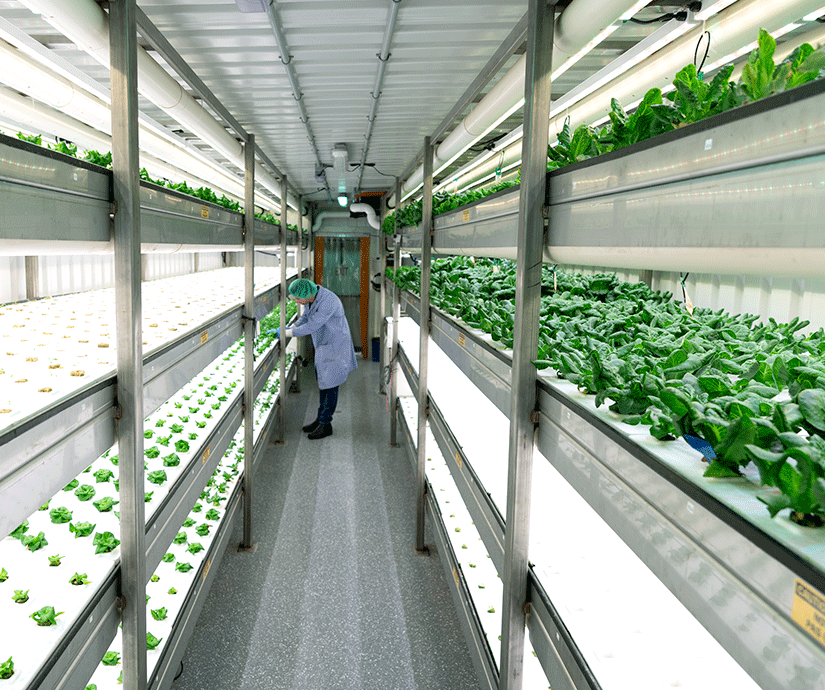In some of Canada’s northern and remote communities, accessing fresh, nutritious produce can be a daily challenge. Harsh climates, short growing seasons and long, costly supply chains mean fruits and vegetables often travel thousands of kilometres before reaching local tables. This can lead to higher prices, reduced freshness and fewer healthy options, which can have an impact on food security, sovereignty and overall community wellbeing.
To help address this, experts from the National Research Council of Canada’s Aquatic and Crop Resource Development Research Centre (ACRD) are working with collaborators at their Modular Agriculture Research Station (MARS) in Saskatoon. This indoor farming facility is built to operate in extreme temperatures, from +40 °C in summer to −40 °C in winter, allowing researchers to study and test ways of growing crops yearround using controlled environment agriculture.
Collaboration is central to this work. Partnering with organizations such as Saskatchewan Polytechnic and the Canadian Space Agency, and engaging closely with Indigenous communities, the research team is exploring technologies and approaches that could make indoor farming more efficient, affordable and adaptable to different climates. This includes improving energy use, expanding the types of crops that can be grown, developing automated monitoring systems and optimizing nutrient solutions.
For the team, this work is as much about people as it is about plants. It’s about exploring ways to make healthy food more accessible, supporting communities in shaping their own food systems and creating approaches that work alongside local traditions and needs. Through shared knowledge, technology and community insight, these experts are working to make it possible to grow fresh produce in all seasons.
Learn more about MARS: Modular agriculture research station – National Research Council Canada
Thank you to the National Research Council of Canada for submitting the article and photos.


